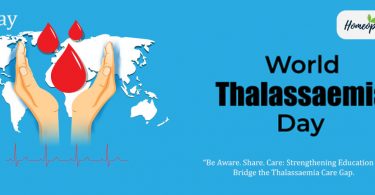
The month of November witnesses a global campaign to raise awareness about lung cancer, its risk factors, and the importance of early detection and treatment. Thus, it is designated as Lung Cancer Awareness Month. With the aim of spreading knowledge about the signs and symptoms of lung cancer, and simultaneously promoting healthy lifestyle choices that can reduce the risk of developing the disease, this initiative is dedicated to educating the public about the impact of this disease, which is the leading cause of cancer deaths worldwide. Additionally, it is also important for patients, caregivers, and families to know the ways of maintaining a healthy lifestyle during and after lung cancer treatment.
Understanding the Importance of Lung Health:
Our lungs play a crucial role in sustaining life, allowing us to inhale oxygen and exhale carbon dioxide. However, the importance of lung health often goes overlooked until an issue arises. Lung Awareness Month provides an opportunity to shine a spotlight on these vital organs and the factors that contribute to their well-being.
According to the American Cancer Society, The most common symptoms of lung cancer are:
- A cough that does not go away or gets worse
- Coughing up blood or rust-colored sputum (spit or phlegm)
- Chest pain that is often worse with deep breathing, coughing, or laughing
- Hoarseness
- Loss of appetite
- Unexplained weight loss
- Shortness of breath
- Feeling tired or weak
- Infections such as bronchitis and pneumonia that don’t go away or keep coming back
- New onset of wheezing
If lung cancer spreads to other parts of the body, it may cause:
- Bone pain (like pain in the back or hips).
- Nervous system changes (such as headache, weakness or numbness of an arm or leg, dizziness, balance problems, or seizures), from cancer spread to the brain.
- Yellowing of the skin and eyes (jaundice), from cancer spread to the liver.
- Swelling of lymph nodes (collection of immune system cells) such as those in the neck or above the collarbone.
Promoting Lung Health:
Quit Smoking:
Smoking is the leading cause of preventable lung diseases. Lung Awareness Month serves as a reminder of the importance of quitting smoking and seeking support for those trying to quit.
Regular Exercise:
Physical activity strengthens the respiratory muscles and improves lung function. Incorporating regular exercise into your routine can contribute to overall lung health.
Healthy Diet:
A nutritious diet supports lung health by providing essential nutrients and antioxidants. Fresh fruits, vegetables, and whole grains are beneficial for respiratory well-being.
Breathing Exercises:
Practicing deep breathing exercises can enhance lung capacity and promote relaxation. Techniques such as pursed-lip breathing and diaphragmatic breathing can be particularly helpful.
Air Quality Awareness:
Being mindful of air quality is crucial for lung health. Avoiding exposure to pollutants, using air purifiers, and staying indoors during poor air quality days can help protect your lungs.
Lung Cancer Awareness Month, observed each November, is a critical time dedicated to shedding light on the prevalence, risks, and prevention of lung cancer. As the most common cause of cancer-related deaths worldwide, lung cancer poses a significant threat to public health. Lung Cancer Awareness Month 2023 plays a crucial role in fostering understanding, dispelling myths, and encouraging proactive measures to combat this often underestimated disease.
Understanding the Urgency:
High Mortality Rates:
Lung cancer remains a leading cause of cancer mortality globally. Its high mortality rates emphasize the urgency of raising awareness to encourage early detection, intervention, and advancements in treatment options.
Prevalence and Impact:
Lung cancer affects both smokers and non-smokers, and its impact extends beyond the individual to families and communities. Increasing awareness is essential to dispel misconceptions and eliminate the stigma associated with the disease.
Underfunding and Research Gaps:
Despite its significant impact, lung cancer historically receives less funding and attention compared to other cancers. Lung Cancer Awareness Month seeks to address this disparity by highlighting the need for increased research funding and collaboration to develop better prevention strategies and more effective treatments.
Promoting Early Detection and Prevention:
Screening Initiatives:
Early detection is crucial for improving lung cancer outcomes. Lung Cancer Awareness Month emphasizes the importance of screening programs, encouraging individuals at high risk, such as current or former smokers, to undergo regular screenings for early detection and intervention.
Risk Factor Education:
By raising awareness about the various risk factors associated with lung cancer, including smoking, exposure to secondhand smoke, and environmental factors, the public can make informed decisions about their lifestyles, reducing their risk of developing the disease.
Advancements in Treatment:
Ongoing research is essential for developing more effective treatments for lung cancer. Increased awareness can drive support for research initiatives, leading to breakthroughs in targeted therapies, immunotherapy, and personalized medicine.
Support and Resources:
Lung Cancer Awareness Month provides an opportunity to highlight the support networks available for individuals diagnosed with lung cancer and their families. Access to information, counseling, and community resources can significantly impact the quality of life for those affected by the disease.
Challenging Stigmas and Myths:
Beyond Smoking:
While smoking is a primary risk factor, it’s crucial to dispel the misconception that only smokers develop lung cancer. Non-smokers, too, can be diagnosed, making it essential to emphasize the diverse range of factors contributing to the disease.
Advocacy for Equity:
Lung cancer often disproportionately affects underserved communities. By advocating for equitable access to healthcare, screenings, and treatments, Lung Cancer Awareness Month aims to address healthcare disparities and ensure that everyone, regardless of socio-economic status, receives the necessary support.
Lung Cancer Awareness Month 2023 is an opportunity to unite communities, healthcare professionals, and policymakers in the fight against lung cancer. By fostering understanding, promoting early detection, supporting research, and challenging stigmas, we can collectively work towards reducing the impact of this disease on individuals and society. Together, we can strive for a future where lung cancer is not only treatable but preventable, making strides towards a world with fewer lives lost to this formidable adversary.





